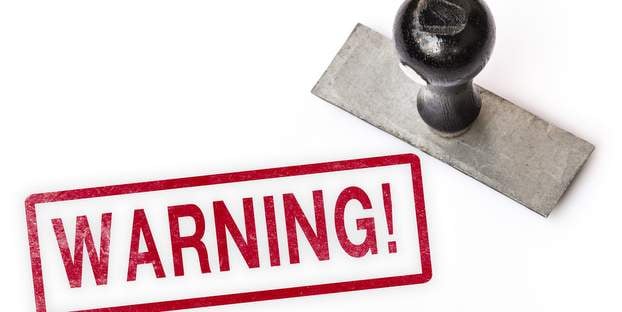When you see a “TTB UPDATE” sitting in your inbox, rarely is it exciting or pleasing news for a producer of an alcoholic beverage. And that’s fine; someone has to keep us all in line, right?
This week’s notification wasn’t a huge deal but worth noting for anyone out there planning to violate the Alcoholic Beverage Labeling Act (ABLA) — the penalty for doing so was just increased. If you don’t know what the ABLA is, read it right here (it’s that surgeon general, government warning thingy).
Oh, the humanity. How much?
The aforementioned ABLA is being adjusted in accordance with the Federal Civil Penalties Inflation Adjustment Act of 1990, as amended. Prior to this, any person who violated ABLA was subject to a civil penalty of not more than $19,787, with each day constituting a separate offense. This maximum penalty is being increased to $20,111.
The new maximum civil penalty for violations of the ABLA took effect on Jan. 10, 2017, and applies to penalties that are assessed after that date.
Background for legal nerds out there
The Inflation Adjustment Act of 1990 requires the regular adjustment and evaluation of civil monetary penalties to maintain their deterrent effect and to ensure that penalty amounts imposed by the Federal Government are properly accounted for and collected. A ‘‘civil monetary penalty’’ is defined in the Inflation Adjustment Act as any penalty, fine or other such sanction that is: (1) For a specific monetary amount as provided by Federal law or has a maximum amount provided for by Federal law; (2) assessed or enforced by an agency pursuant to Federal law; and (3) assessed or enforced pursuant to an administrative proceeding or a civil action in the Federal courts.
To account for inflation that took place between the enactment of the original penalties and the enactment of the Improvements Act of 2015, agencies must make a ‘‘catch-up’’ first adjustment through an interim final rulemaking. TTB made the initial adjustment to the ABLA penalty required by the Inflation Adjustment Act, as amended, in an interim final rule that was published and effective on July 1, 2016.
RELATED: TTB: Bond requirement for small craft breweries will be eliminated
The ABLA contains a maximum civil monetary penalty, rather than a range of minimum and maximum civil monetary penalties. For such penalties, the rules dictate that the inflation adjustment shall be determined by increasing the maximum penalty by the cost-of-living adjustment. The cost-of-living adjustment means the percentage (if any) by which the Consumer Price Index for all-urban consumers (CPI–U) for the month of October preceding the date of the adjustment exceeds the CPI–U for the month of October 1 year before the month of October preceding the date of the adjustment.
(Got all that? Almost done. Stick with it.)
The CPI–U in October 2015 was 237.838, and the CPI–U in October 2016 was 241.729. The rate of inflation is 1.636 percent. When applied to the current ABLA penalty of $19,787, this rate of inflation yields a raw (unrounded) inflation adjustment of $323.72. Rounded to the nearest dollar, the inflation adjustment is $324, meaning that the new maximum civil penalty for violations of the ABLA will be $20,111. The new maximum civil penalty will apply to all penalties that are assessed after January 10, 2017.
When applied to the current ABLA penalty of $19,787, this rate of inflation yields a raw (unrounded) inflation adjustment of $323.72. Rounded to the nearest dollar, the inflation adjustment is $324, meaning that the new maximum civil penalty for violations of the ABLA will be $20,111. The new maximum civil penalty will apply to all penalties that are assessed after January 10, 2017.





Leave a Reply
You must be logged in to post a comment.